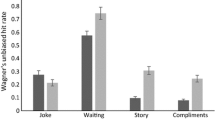Abstract
Peter Baehr, Katelin Albert, Eleanore Townsley and Neil Gross raise a variety of issues in relation to American Sociology: From Pre-Disciplinary to Post-Normal (2014a). In response, I defend the claim that the revival of sociology enrollments after the 1980s owes something to the concentration on gender issues and the feminization of sociology. I defend the claim that the response to the enrollment crisis was a rational strategy which succeeded. I also consider challenges to my depiction of the caste system in American sociology against the idea that there is a continuous distribution of merit. I argue that the changes in American sociology during this period need to be understood against the larger backdrop of the transformation to post-normal science and the acceptance of openly partisan academic fields. Although I attempted to record rather than evaluate these developments, I respond to Baehr and Townsley’s attempt to discern an evaluative stance, and provide a context for this response in relation to the problem of expertise.
Similar content being viewed by others
References
Chriss, James (2014). Confronting Gouldner: Sociology and political activism. Leiden: Brill.
Cole, S. (Ed.). (2001). What’s wrong with sociology? New Brunswick: Transaction Publishers.
Deaton, Richard (2015) Foreword. In J. Chriss, Confronting Gouldner: Sociology and political activism. Leiden: Brill.
Douglas, H. (2009). Science, policy, and the value-free ideal. Pittsburgh: The University of Pittsburgh Press.
Drake, S. C., & Cayton, H. R. ([1945] 1993). Black metropolis: A study of Negro life in a northern city. Chicago: The University of Chicago Press.
Drake, S. C. (1980). Anthropology and the black experience. The Black Scholar, 11(7), 2–31.
Droysen, T. G. (1867) Outline of the principles of history (trans: Benjamin, E.). Boston: Andrews.
Ferree, M. M., Khan, S. R., & Morimoto, S. A. (2007). Assessing the feminist revolution: The presence and absence of gender in theory and practice. In C. Calhoun (Ed.), Sociology in America (pp. 438–479). Chicago: The University of Chicago Press.
Funtowicz, S., & Ravetz, J. (2003). Post-normal science. The International Society for Ecological Economics (ISEE); Internet Encyclopaedia of Ecological Economics. The International Society for Ecological Economics (ISEE) http://www.isecoeco.org/. Accessed 15 Sept 2014.
Hammersley, M. (2014). The limits of social science: Causal explanation and value relevance. London: Sage.
Horowitz, I. L. (1994). The Decomposition of Sociology. New York: Oxford University Press.
Kitcher, P. (2000). Science, truth, and democracy. Oxford: Oxford University Press.
Kitcher, P. (2011). Science in a democratic society. Amherst: Prometheus Books.
Lefort, C. (2000). Writing the political text (trans: Curtis, D.A.). Durham: Duke University Press.
Lundberg, G. (1947). Can science save us? New York: Longmans, Green & Company.
Mannheim, K. (1954). Ideology and utopia: An introduction to the sociology of knowledge, trans. L. Wirth and E. Shils. New York: Harcourt Brace & Company. https://archive.org/details/ideologyutopiain00mann. Accessed 15 Sept 2014.
Merton, R. ([1942] 1973). The normative structure of science. In The Sociology of science: Theoretical and empirical investigations (pp. 265–278). Chicago: University of Chicago Press.
Risman, B., & Berube, L. (2008). Report card on gender scholarship and equity in sociology departments (among PhD granting institutions): revision to the report card on gender and women friendly institutions 2004. SWS NetworkNews, XXV(3), 13–14.
Shils, E. (1984). The academic ethic. Chicago: The University of Chicago Press.
Simpson, I. H. & Simpson, R. L. (2001) “The Transformation of the American Sociological Association”. In S. Cole (Ed.), What’s Wrong with Sociology? New Brunswick, NJ: Transaction Publishers.
Smith, C. (2014). The sacred project of American sociology. New York: Oxford University Press.
Smith, D. E. ([1972] 1974). Women’s perspective as a radical critique of sociology. Sociological Inquiry, 44(1), 7–13.
Smith, D. E. (1987). The everyday world as problematic: A feminist sociology. Toronto: University of Toronto Press.
Smith, D. (1990). The conceptual practices of power: A feminist sociology of knowledge. Boston: Northeastern University Press.
Smith, D. E. (2005). Institutional ethnography: A sociology for people. Lanham: Altamira Press.
Smith, M. (1994). Social science in the crucible: The American debate over objectivity and purpose, 1918-1941. Durham: Duke University Press.
Solovey, M. (2013). Shaky foundations: The politics-patronage-social science nexus in cold war America. New Brunswick: Rutgers University Press.
Strauss, L. (1952). Persecution and the art of writing. Glencoe: The Free Press.
Turner, S. & R. Factor (1984). Max Weber and the dispute over reason and value: A study in philosophy, ethics, and politics. London: Routledge & Kegan Paul, Ltd.
Turner, S., & Turner, J. (1990). The impossible science: An institutional analysis of American sociology. Beverly Hills: Sage.
Turner, S. (2003a). The third science war. Social Studies of Science, 33(4), 581–611.
Turner, S. (2003b). Liberal democracy 3.0: Civil society in an age of experts. London: Sage.
Turner, S. (2013). What can we say about the future of social science? Anthropological Theory, 13(3), 187–200.
Turner, S. (2014a). American sociology: From pre-disciplinary to post-normal. Basingstoke: Palgrave.
Turner, S. (2014b). The politics of expertise. New York: Routledge.
Wacquant, L. (2002). Scrutinizing the street: poverty, morality and the pitfalls of urban ethnography. American Journal of Sociology, 107(6), 1468–1532.
Weeber, S. C. (2006). Elite versus mass sociology: An elaboration on sociology’s academic caste system. The American Sociologist 37(4), 50-67.
Ziman, J. (2000). Real science: What it is, and what it means. Cambridge: Cambridge University Press.
Author information
Authors and Affiliations
Corresponding author
Rights and permissions
About this article
Cite this article
Turner, S. Going Post-Normal: A Response to Baehr, Albert, Gross, and Townsley. Am Soc 46, 51–64 (2015). https://doi.org/10.1007/s12108-014-9247-4
Published:
Issue Date:
DOI: https://doi.org/10.1007/s12108-014-9247-4




